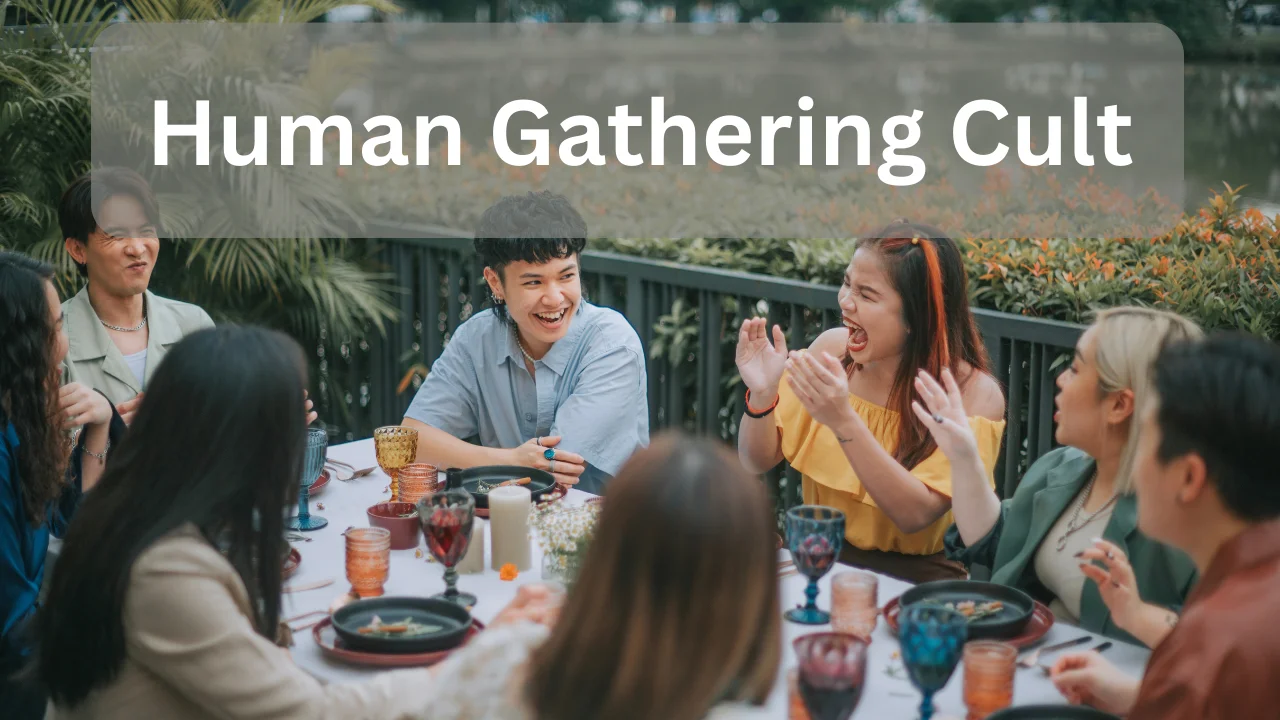Introduction
Human gathering cults, often shrouded in mystery and controversy, have been a part of human history for centuries. These groups, characterized by their unique rituals and beliefs, often gather around a charismatic leader or a shared ideology. But what exactly defines a human gathering cult, and why do they captivate our imagination?
The Origins of Human Gathering Cults
Human gathering cults have existed since ancient times, with some of the earliest examples found in prehistoric communities. These early cults often centered around worshiping deities, nature, or ancestors. Over time, the nature of these cults evolved, influenced by cultural, religious, and social changes.
Key Characteristics of Human Gathering Cults
- Charismatic Leadership: Most cults are led by a charismatic figure who claims to have special knowledge or abilities.
- Unique Beliefs and Practices: Cults often develop unique rituals and belief systems that set them apart from mainstream society.
- Community and Exclusivity: Members of cults usually form tight-knit communities and often see themselves as distinct from or superior to non-members.
Famous Human Gathering Cults in History
- The Eleusinian Mysteries: An ancient Greek cult that worshiped Demeter and Persephone, known for its secretive rituals.
- The Cult of Dionysus: Followers of Dionysus engaged in ecstatic rituals that celebrated the god of wine and festivity.
- The Peoples Temple: Led by Jim Jones, this 20th-century cult ended in tragedy with the Jonestown Massacre.
The Psychology Behind Cult Membership
Understanding why individuals join cults involves exploring psychological and social factors. People often join cults seeking a sense of belonging, purpose, or answers to life’s big questions. Cults can provide a structured environment and community that fulfill these needs, albeit sometimes at a high personal cost.
The Impact of Human Gathering Cults on Society
Cults have had a profound impact on society, both positive and negative. While some have contributed to cultural and religious diversity, others have been involved in criminal activities and have caused harm to their members and the broader community.
Practical Tips for Identifying and Avoiding Harmful Cults
- Research and Educate: Learn about the signs of cult behavior and the history of known cults.
- Critical Thinking: Question any group that demands unquestioning loyalty or isolates you from family and friends.
- Seek Support: If you or someone you know is involved in a cult, seek help from organizations that specialize in cult recovery.
FAQs
Q1: What defines a human gathering cult?
A1: A human gathering cult is typically defined by a charismatic leader, unique beliefs and practices, and a close-knit, often exclusive community.
Q2: Why do people join human gathering cults?
A2: People join cults seeking a sense of belonging, purpose, or answers to life’s big questions, often finding community and structure within the group.
Q3: Are all cults harmful?
A3: Not all cults are harmful; some contribute positively to cultural and religious diversity, though others can be dangerous and exploitative.
Q4: How can you identify a potentially harmful cult?
A4: Warning signs include demands for absolute loyalty, isolation from friends and family, and practices that exploit or harm members.
Q5: What should you do if you suspect someone is involved in a harmful cult?
A5: Seek support from organizations specializing in cult recovery and encourage the person to critically evaluate the group’s practices and beliefs.
Also Read: Ilimecomix: Revealing the Secrets About Unique Comic Brand
Conclusion
Human gathering cults remain a captivating topic due to their mysterious nature and the profound impact they have on individuals and society. By understanding their characteristics, history, and psychology, we can better recognize and navigate the complex world of cults.

Stephen Norman is a skilled and accomplished writer known for his versatility across numerous niches. He consistently delivers insightful and engaging content in various fields. Stephen’s extensive experience and profound expertise make him a highly sought-after author in the digital writing sphere.











